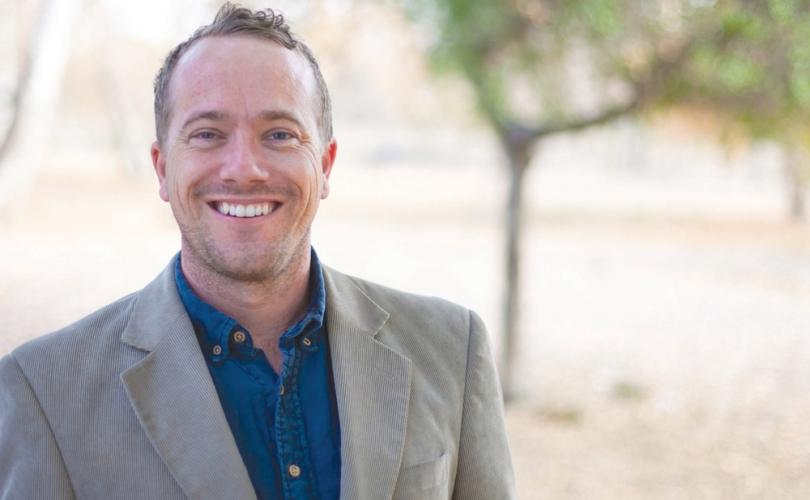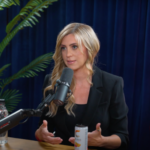Pornography
He started viewing porn at 8-years-old. Now he fights porn as a career.
By Jonathon Van Maren
August 8, 2018 (LifeSiteNews) – There’s no denying it: Fighting pornography is a pretty weird thing to do, especially as part of your job. I speak on the dangers of porn frequently in schools, churches, and on campuses, and one of the questions that gets asked nearly every single time during Q and A is: How did you end up speaking on this topic? At conferences, I soon discovered that nearly everyone who addresses the subject of pornography gets asked the same question.
One of the anti-porn universe’s brightest stars, Matt Fradd, has joked about how bizarre his job is. I heard him explain to one roaring audience (in his disarming Aussie accent) that his mother doesn’t quite know how to explain what he does. “He helps people,” she usually responds, unhelpfully, to the solicitous questions of friends asking about her son’s job.
And that he certainly does. Fradd speaks to tens of thousands of people every year, and countless young men and women have gotten free of pornography because of his work. His book The Porn Myth: Exposing the Reality Behind the Fantasy of Pornography is also an invaluable resource for those seeking to extract themselves from their porn habit. Some time ago, I asked Matt what it was like, on a personal level, to be on the front lines of battling the porn industry.
How did you end up fighting pornography as part of your job?
I experienced a good amount of healing from pornography a couple years into my marriage, so around 2008, and at that time, having done a lot of work with young people and not so young people and ministry, I recognized that this was something that many people were struggling with. So it was just sort of a natural progression that I wanted to begin speaking about this to people, to offer some advice that I found helpful. Now, often people would say to me, “Weren’t you embarrassed, weren’t you ashamed?” and I have to say no, I wasn’t. Not sure why. Maybe it was because I was aware just how prevalent this problem was in the life of many people and I figured that if no one else was out there speaking about it, I would. Now, I don’t mean to paint myself as a maverick, obviously there were a lot of good people who were addressing this issue, but not enough.
Where did you start with that? With a problem this widespread, with over 80% of males, for example, looking at porn at very minimum monthly, where do we even start with trying to combat this social problem and raising awareness?
I think you start however you can with any resources you have. You know, you remember that old story of that girl that was on the beach and thousands of starfish had washed up, and she was grabbing one and throwing them back in the ocean one at a time, and someone came up to her and said, “You’ll never get all of those back in the ocean.” She picked up one and she said, “That might be true, but I can save this one.” And I think that sort of mentality is the kind of mentality we need when combating a pornified culture in which many people are being destroyed by porn.
For me, I woke up one night, it was at three in the morning, and I just remember thinking, “I need to write a pamphlet and record my talk and start a website.” And I was aware that none of those things were terrifically original, and yet I felt I had to talk about it somehow and those were the avenue by which I could begin speaking about it, and so, it just began there. What I’m finding in the culture is [that] there is this grassroots movement that is recognizing the negative effects pornography is having on us individually and in our relationships and on society, that’s religious or nonreligious. We’re starting to see [that] it looks like pornography is having a really negative impact on us. So that’s beneath the seat, too. So I find that I don’t get a lot of opposition while I’m out there speaking about the negative impacts of pornography. Sometimes I do, but it’s like people can meet me somewhere. So they might say, “No pornography’s okay, and you’re a prude, but I suppose I can see what you mean, that it can become a problem.” And you work with people wherever they’re at.
What sort of feedback do you have from students and teenagers on this? How do you deal with all the teenagers then who want to talk to you about this, who want the help to get free, or who just want somebody who talks honestly about porn to listen to them?
Yeah, it can be difficult because as you say, after a high school assembly or a conference, my email and Facebook just start exploding and I’m doing so many talks these days that I just cannot, if I want to have a happy marriage and family life, I cannot respond at length to each and every person, though I would like to. So that was one of the beautiful things about [starting] The Porn Effect is that there’s so many great resources on there, there’s podcasts, videos, blogs, an online forum, etc., so for the most part I’m sort of able to respond with a one or two sentence sort of response and then send to those different links.
One of the things I find the most is I have people asking me, “Can people do it? Can people quit porn?” I’ve met a father once after I did a pro-life talk who had been addicted to porn for 25 years. I met another guy when I did a talk at an apologetics conference who said that he had been looking at porn for virtually his whole marriage, he said, “I’m almost turning 60 and I still haven’t managed to quit, so why bother now?” One of the things I get on this issue is a lot of people who have a lot of despair, and I have to tell them stories of people who have broken free of porn, who have quit porn, who have repaired their marriages in order to encourage them. What are a few stories you tell when people need encouragement?
I think one of the reasons many people feel discouraged is because the advice they’re so often given is surface-y, simplistic techniques as opposed to a more in-depth analysis of the problem. If all you’ve been told is–you know, back in the day when we didn’t have these computers in our pockets–someone saying, move the computer into a high traffic area of the house. Okay, that may be somewhat helpful, but there’s a whole lot more to the equation. So if let’s say you took that advice and you ran with it and maybe you found freedom from this stuff for like five months and then you fell, well then you become very sort of cynical to that sort of advice.
I think what we need to do is be a little more sophisticated in our responses. I think pornography is a very efficient [form of] escapist behavior. Speaking from my own example, I started turning to porn when I was 8 and I didn’t stop until I was about 29. And what that ends up being is a way to escape negative emotion. When we feel lonely, or frustrated or emasculated or rejected, or you know, just things seem out of control, we turn to pornography and it just gives us a quick fix.
Speaking personally again, even though it’s been a few years since I looked at porn, I now am realizing that there’s a lot of immaturity in me in the way that I can get angry and so forth, because in the past, I just went to porn to feel good and now I’ve got to kind of grow up in these different parts of my personality. I would just say that there’s a number of people I’ve spoken with who, I know they aren’t lying to me when they say things like, “I haven’t looked at porn in 10 years or 20 years or 5 years.” But again, I think we need to realize that victory is only going to be fully and actually and completely achieved in Heaven. So, freedom from porn isn’t our goal as Christians, Heaven is, and this virtue of chastity and self-mastery is part of the [Christian life.]
READ THE REST OF THIS COLUMN AT LIFESITENEWS.COM








